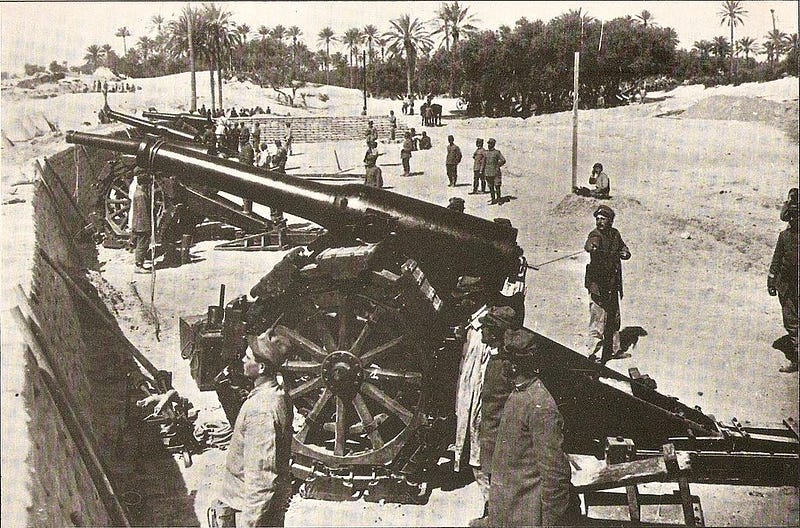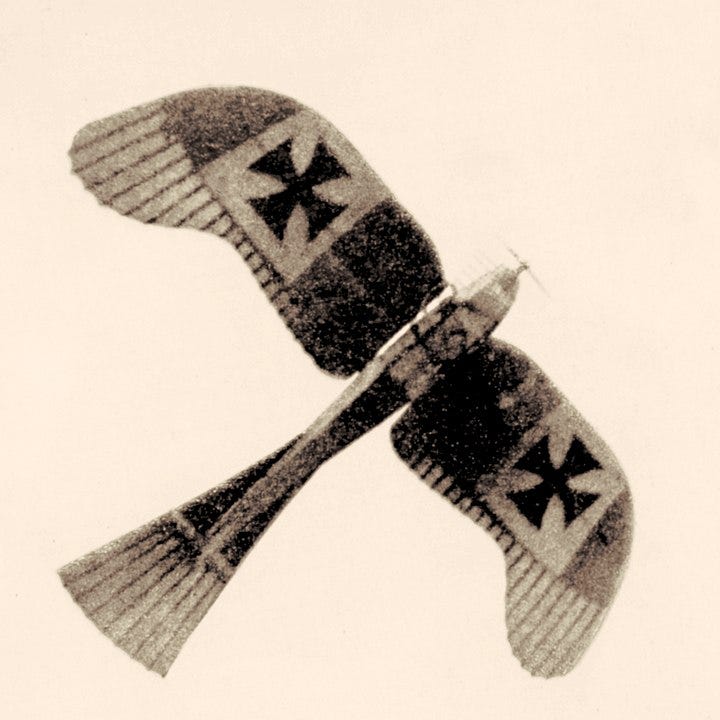The Italo-Turkish War: An Early Glimpse of World War I
Written on
Chapter 1: The Decline of the Ottoman Empire
In 1911, just three years prior to the onset of the Great War, the Ottoman Empire was in disarray. Once a powerful entity, it had been deteriorating since the early 20th century, struggling to maintain control over its core territories. The Ottoman navy was nearly non-existent, while their armies were stretched thin, attempting to quell various uprisings, leaving critical areas unprotected. This weakened state caught the attention of ambitious nationalists in Italy, who had long eyed the North African kingdoms.
On September 28, 1911, Italian warships appeared off the coast of Tripoli, tasked with seizing the city as a foothold for a larger campaign in Libya (Tripolitania Vilayet). The ensuing conflict took the Italians and Ottomans by surprise, lasting less than a year but serving as a precursor to the larger scale warfare that would erupt in 1914.
Early Success
Italy was overly confident in its ability to swiftly conquer the Ottomans in Africa, budgeting just 300 million lire for a campaign they anticipated would last only a few months. Initially, their expectations seemed warranted as Italian forces captured Tripoli with a contingent of 1,500 sailors following a fierce naval bombardment. The city fell two weeks before ground troops arrived.
On October 10th, the Italians landed their forces and swiftly secured key locations such as Tripoli, Derna, Tobruk, and Khoms. With these coastal strongholds under their control, they believed their naval dominance and technological advancements would quickly lead to a complete takeover of the region, which was not the case.
Section 1.1: The Stalemate of Trench Warfare

It did not take long for trench warfare to emerge as a dominant feature of the conflict. After securing vital coastal cities, the Italians attempted to advance inland, only to encounter entrenched Ottoman forces that, despite being outnumbered, held their ground. Utilizing planes, armored vehicles, cavalry, and artillery, the Italians repeatedly attempted to breach the Ottoman defenses but faced persistent setbacks.
The Italians, too, established their own defensive positions around Derna, Tripoli, and Benghazi. While the Ottomans launched counteroffensives to reclaim these strategic points, they were consistently repelled by the well-fortified Italian forces, who were reluctant to leave their trenches. The conflict soon devolved into a stalemate, with 1912 witnessing little movement as both sides became entrenched in an expanding network of fortifications.
Subsection 1.1.1: The Ineffectiveness of New Technologies

The Italo-Turkish War marked the first instance of military airplanes being utilized in combat. The Italians pioneered the use of aircraft for reconnaissance missions and were also the first to conduct aerial bombing, albeit with limited effectiveness, as they dropped grenades on enemy positions. Conversely, the Ottomans achieved the historic milestone of shooting down an aircraft with a rifle, highlighting the primitive yet significant nature of early aerial combat.
The reliance on aircraft for reconnaissance and ineffective bombing campaigns foreshadowed the challenges that would manifest in the upcoming Great War, as despite their apparent advantage, the aircraft did not alter the course of battle.
Chapter 2: The Unraveling of Stability
The most significant lesson from the Italo-Turkish War was the instability that arose from widespread conflict. The Ottoman inability to mount an effective defense against Italy’s sudden invasion encouraged long-suffering populations in the Balkans to take action, culminating in the outbreak of the First Balkan War in the final week of the Italo-Turkish War—a correlation that was no coincidence.
The Balkan Wars persisted from 1912 until 1914, characterized by chaos fueled by Ottoman decline and rampant nationalism. The resulting turmoil led to the assassination of Archduke Franz Ferdinand less than two years after the First Balkan War ignited, setting the stage for further conflict.
This tumultuous period foreshadowed the broader upheavals to come. World War I witnessed the collapse of numerous longstanding institutions, with communism rising in Russia and the Middle East devolving into a fragmented landscape of competing factions. The Italo-Turkish War, much like World War I, would leave an indelible mark on the global social order.
Conclusion
The Italo-Turkish War, often overlooked in history, provided a clear precursor to World War I. It showcased the emergence of trench warfare, the introduction of new military technologies, and the resulting stagnation and instability. The conflict oscillated from one-sided victories to a complete deadlock, leading to numerous casualties. Ultimately, while Italy managed to claim Libya, they were forced to relinquish their conquests during World War I.
The ambitious military plans of the Italians, coupled with their inability to realize these objectives, would haunt them throughout the Great War, offering a sobering preview of the future of warfare.

This video explores the often-forgotten Italo-Turkish War, detailing its significance and how it anticipated World War I.
Watch the official trailer for "The Forgotten Battle," showcasing the impact of early 20th-century conflicts on modern warfare.